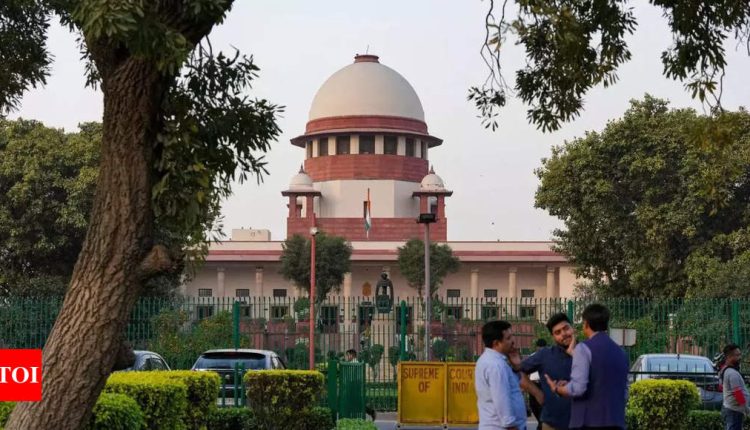NEW DELHI: The Supreme Court on Tuesday agreed to hear on March 20 the Telangana government’s writ petition seeking a direction to governor Tamilisai Soundarajan to expedite decisions on as many as 10 bills passed pending with her, many for six months. The bills have been passed by the state assembly.
Senior advocate Dushyant Dave, on behalf of the K Chandrasekhar Rao government, sought urgent hearing on the state’s plea before a bench headed by CJI D Y Chandrachud. He said the governor’s non-action on bills passed by the assembly is disrupting governance in the state. As per Article 200 of the Constitution, all bills passed by the assembly “shall be presented to the governor and the governor shall declare either that he assents to the bill or that he withholds as sentor that he reserves the bill for the consideration of the President”.
It also said that “the governor may, a s soon as possible after the presentation to him of the bill, return it if it is not a money bill together with a message requesting that the House or Houses will reconsider the bill or any specified provision thereof. . . ” The House can incorporate or reject the governor’s suggestions and return thebill, in which case the governor is bound to give assent. However, the Constitution leaves it to the governor’s discretion as to what should be the “as soon as possible” time period to take a decision.
The SC would tread a new territory while finding a resolution of the piquant issue involving three constitutional authorities — the legislature, the government, and the governor. Generally, the SC refrains from issuing a direction to the governor, who under Article 163(2) is not answerable to a court of law. The Article says, “If any question arises whether any matter is or is not a matter as respects which the governor is by o r under this Constitution required to act in his discretion, the decision of the governor in his discretion shall be final, and the validity of anything done b y the governor shall not be called in question on the ground that he ought or ought not to have acted in his discretion. ”
Article 163(2) bars any court from inquiring “whether any, and if so what, advice was tendered by ministers to the governor”. In this backdrop, the SC would have to plough a lone furrow in the constitutional field, which is becoming increasingly fertile for judicial intervention given the impasse between elected governments and the governors.
Senior advocate Dushyant Dave, on behalf of the K Chandrasekhar Rao government, sought urgent hearing on the state’s plea before a bench headed by CJI D Y Chandrachud. He said the governor’s non-action on bills passed by the assembly is disrupting governance in the state. As per Article 200 of the Constitution, all bills passed by the assembly “shall be presented to the governor and the governor shall declare either that he assents to the bill or that he withholds as sentor that he reserves the bill for the consideration of the President”.
It also said that “the governor may, a s soon as possible after the presentation to him of the bill, return it if it is not a money bill together with a message requesting that the House or Houses will reconsider the bill or any specified provision thereof. . . ” The House can incorporate or reject the governor’s suggestions and return thebill, in which case the governor is bound to give assent. However, the Constitution leaves it to the governor’s discretion as to what should be the “as soon as possible” time period to take a decision.
The SC would tread a new territory while finding a resolution of the piquant issue involving three constitutional authorities — the legislature, the government, and the governor. Generally, the SC refrains from issuing a direction to the governor, who under Article 163(2) is not answerable to a court of law. The Article says, “If any question arises whether any matter is or is not a matter as respects which the governor is by o r under this Constitution required to act in his discretion, the decision of the governor in his discretion shall be final, and the validity of anything done b y the governor shall not be called in question on the ground that he ought or ought not to have acted in his discretion. ”
Article 163(2) bars any court from inquiring “whether any, and if so what, advice was tendered by ministers to the governor”. In this backdrop, the SC would have to plough a lone furrow in the constitutional field, which is becoming increasingly fertile for judicial intervention given the impasse between elected governments and the governors.


